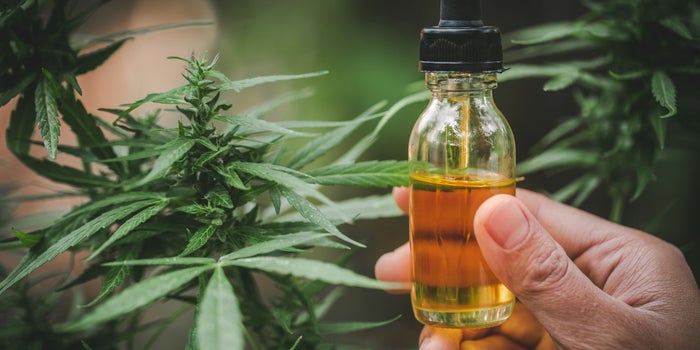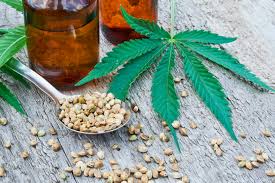“You probably don’t have to look farther than your local drugstore or beauty product supplier to know CBD has taken a starring role in everything from sparkling water and gummies to tincture oils and lotions. Some may even say that CBD is the “it” ingredient of this day and age.
You’ve probably also heard that CBD — which is an abbreviation for cannabidiol — can help with stress, anxiety, and pain. “When people are in pain, they have a stress response, which causes an increase in cortisol and an increase in blood sugar,” says Veronica J. Brady, Ph.D., CDE, a registered nurse and an assistant professor at the Cizik School of Nursing at the University of Texas in Houston. Relieving pain can help alleviate the stress response and improve blood sugar levels, as well as improve sleep, she adds.
If you’re managing type 2 diabetes, it’s natural to be curious about whether CBD might help you manage those symptoms, too, to help stabilize your blood sugar. Some healthcare professionals say CBD may play a role in treating diabetes, but it’s important to understand that the only health condition CBD has proved effective for is epilepsy in kids. The jury is unfortunately still out, because of a lack of comprehensive research on CBD and type 2 diabetes.
Scientific Studies on CBD and Type 2 Diabetes, and Barriers to Research
Despite interest among people with type 2 diabetes, large, rigorous studies showing how CBD may affect type 2 diabetes are lacking, says Y. Tony Yang, MPH, a doctor of science in health policy and management and a professor at George Washington University in Washington, DC. Specifically absent are randomized controlled trials, which are the gold standard of medical research, per a June 2016 article in the New England Journal of Medicine.
But early research may suggest the two are worth studying further. For example, a small study published in October 2016 in Diabetes Care in the United Kingdom of 62 people with type 2 diabetes found that CBD did not lower blood glucose. Participants were not on insulin, nor were they on any diabetes drugs, and they were randomly assigned to five different treatment groups for 15 weeks: 100 milligrams (mg) of CBD twice daily; 5 mg of THCV (another chemical in cannabis) twice daily; 5 mg CBD and 5 mg THCV together twice daily; 100 mg CBD and 5 mg of THCV together twice daily; or placebo. According to the authors, THCV (but not CBD) significantly improved blood glucose control.
A Canadian study published in Pain of 37 people with diabetes found that a synthetic cannabinoid called nabilone improved nerve pain. “We also found patients had better sleep measures, so their sleep was more complete. Anxiety levels improved to a smaller amount,” says Dr. Toth, who led the study.
Historically, cannabinoids (a group of chemicals in the cannabis plant) have been lumped together, including CBD, THC, and more than 100 others. In the past decade, growers and manufacturers have been able to isolate CBD, mainly by cultivating industrial hemp that is high in CBD and very low in THC, says Jackson. The 2018 Farm Bill removed industrial hemp from the controlled substances list, clearing the way for more production and research of hemp and thus CBD.
Continue reading at Everyday Health




















